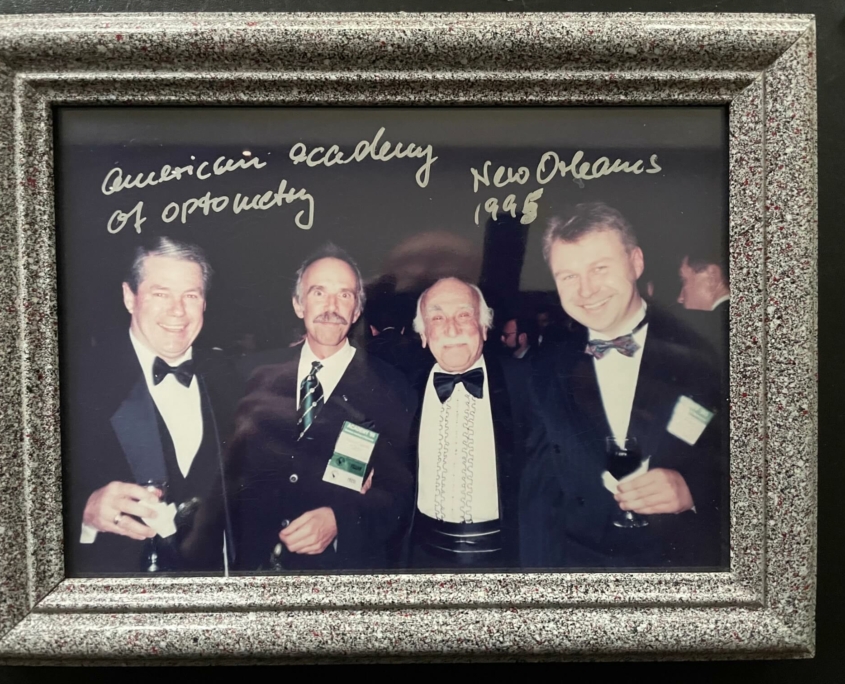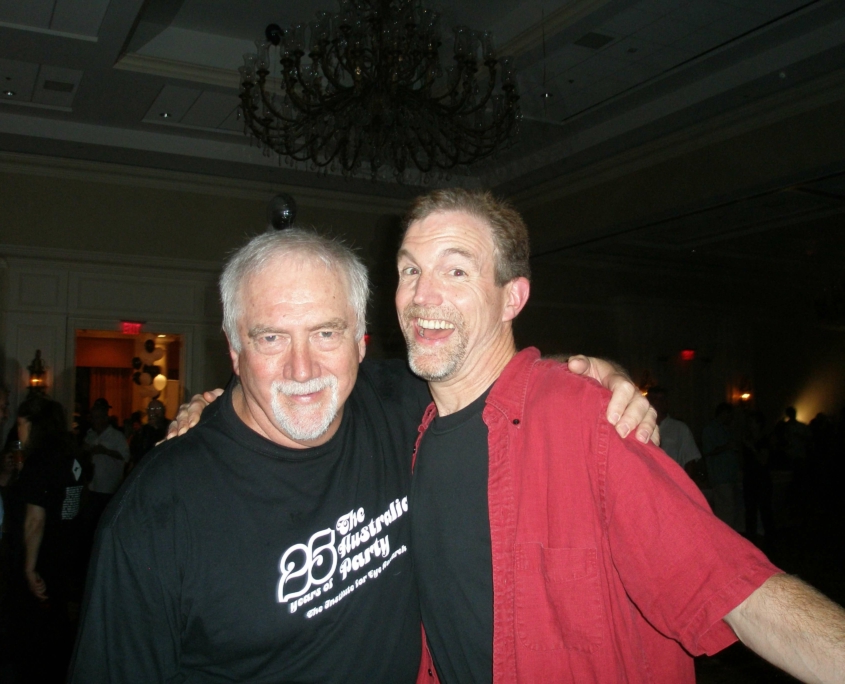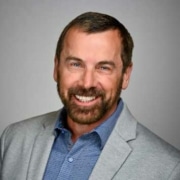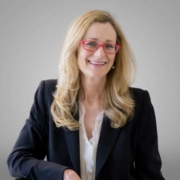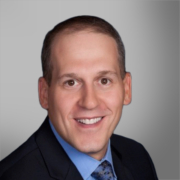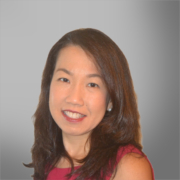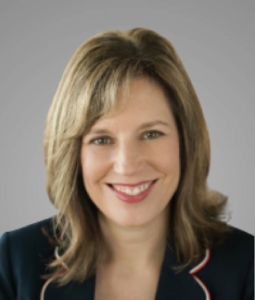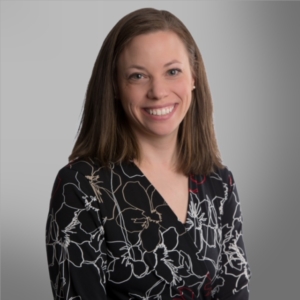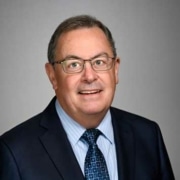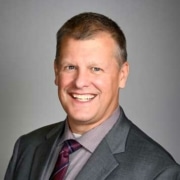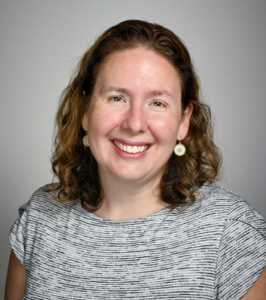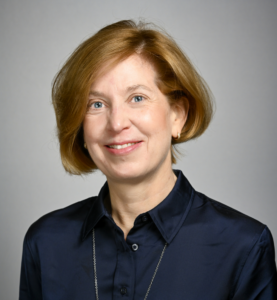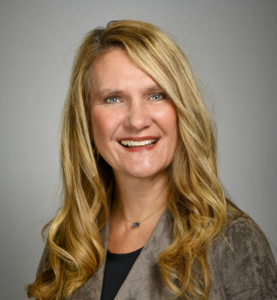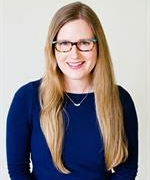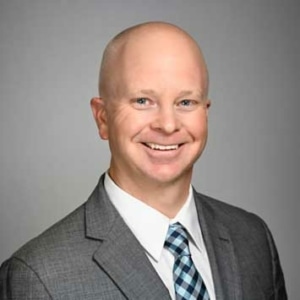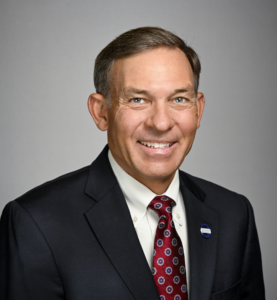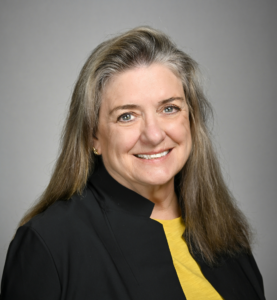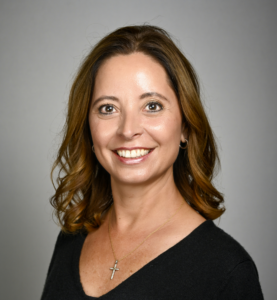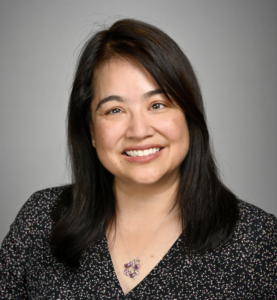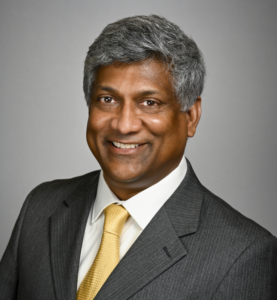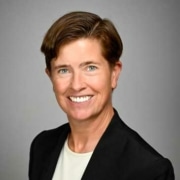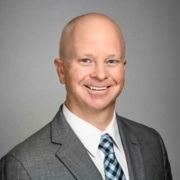Past Meetings
- Academy 1922 St. Louis – St. Louis, MO
- Academy 1923 Rochester – Rochester, NY
- Academy 1924 Kansas City – Kansas City, MO
- Academy 1925 Buffalo – Buffalo, NY
- Academy 1926 Washington, DC – Washington, DC
- Academy 1927 New York – New York, NY
- Academy 1928 Chicago – Chicago, IL
- Academy 1929 Boston – Boston, MA
- Academy 1930 Omaha – Omaha, NE
- Academy 1931 Philadelphia – Philadelphia, PA
- Academy 1932 Chicago – Chicago, IL
- Academy 1933 Baltimore – Baltimore, MD
- Academy 1934 Cleveland – Cleveland, OH
- Academy 1935 New York – New York, NY
- Academy 1936 Chicago – Chicago, IL
- Academy 1937 Rochester – Rochester, NY
- Academy 1938 Richmond – Richmond, VA
- Academy 1940 Chicago – Chicago, IL
- Academy 1941 Chicago – Chicago, IL
- Academy 1942 Chicago – Chicago, IL
- Academy 1943 Cleveland – Cleveland, OH
- Academy 1944 Chicago – Chicago, IL
- Academy 1945 Columbus – Columbus, OH
- Academy 1946 Philadelphia – Philadelphia, PA
- Academy 1947 Chicago – Chicago, IL
- Academy 1948 Winston-Salem – Winston-Salem, NC
- Academy 1949 Cleveland – Cleveland, OH
- Academy 1950 Chicago – Chicago, IL
- Academy 1951 New York – New York, NY
- Academy 1952 Rochester – Rochester, NY
- Academy 1953 Chicago – Chicago IL
- Academy 1954 Toronto – Toronto, Canada
- Academy 1955 Chicago – Chicago, IL
- Academy 1956 Houston – Houston, TX
- Academy 1957 Chicago – Chicago, IL
- Academy 1958 Boston – Boston, MA
- Academy 1959 Chicago – Chicago, IL
- Academy 1960 San Francisco – San Francisco, CA
- Academy 1961 Chicago – Chicago, IL
- Academy 1962 Miami – Miami, FL
- Academy 1963 Chicago – Chicago, IL
- Academy 1964 Columbus – Columbus, OH
- Academy 1965 Chicago – Chicago, IL
- Academy 1966 Denver – Denver, CO
- Academy 1967 Chicago – Chicago, IL
- Academy 1969 Philadelphia – Philadelphia, PA
- Academy 1970 Miami – Miami, FL
- Academy 1971 Toronto – Toronto, Canada
- Academy 1972 New York – New York, NY
- Academy 1973 San Francisco – San Francisco, CA
- Academy 1974 Miami – Miami, FL
- Academy 1975 Columbus – Columbus, OH
- Academy 1976 Portland – Portland, OH
- Academy 1977 Birmingham – Birmingham, AL
- Academy 1978 Boston – Boston, MA
- Academy 1979 Anaheim – Anaheim, CA
- Academy 1980 Chicago – Chicago, IL
- Academy 1981 Orlando – Orlando, FL
- Academy 1982 Philadelphia – Philadelphia, PA
- Academy 1983 Houston – Houston, TX
- Academy 1984 St. Louis – St. Louis, MO
- Academy 1985 Atlanta – Atlanta, GA
- Academy 1986 Toronto – Toronto, Canada (Attendees: 1938)
- Academy 1987 Denver – Denver, CO (Attendees: 1875)
- Academy 1988 Columbus – Columbus, OH (Attendees: 1957)
- Academy 1989 New Orleans – New Orleans, LA (Attendees: 2737)
- Academy 1990 Nashville – Nashville, TN (Attendees: 2464)
- Academy 1991 Anaheim – Anaheim, CA (Attendees: 2877)
- Academy 1992 Orlando – Orlando, FL (Attendees: 3189)
- Academy 1993 Boston – Boston, MA (Attendees: 3560)
- Academy 1994 San Diego – San Diego, CA (Attendees: 3707)
Rex Ghormley, Wolfgang Cagnolati, Irving M. Borish, and Stefan Schwarz at the Academy 1995 New Orleans meeting.
- Academy 1995 New Orleans – New Orleans, LA (Attendees: 3446)
- Academy 1996 Orlando – Orlando, FL (Attendees: 4089)
- Academy 1997 San Antonio – San Antonio, TX (Attendees: 3773)
- Academy 1998 San Francisco – San Francisco, CA (Attendees: 4764)
- Academy 1999 Seattle – Seattle, WA (Attendees: 3983)
- Academy 2000 Orlando – Orlando, FL (Attendees: 4418)
- Academy 2001 Philadelphia – Philadelphia, PA (Attendees: 3518)
- Academy 2002 San Diego – San Diego, CA (Attendees: 4470)
- Academy 2003 Dallas – Dallas, TX (Attendees: 3553)
- Academy 2004 Tampa – Tampa, FL (Attendees: 3861)
- Academy 2005 San Diego – San Diego, CA (Attendees: 4408)
- Academy 2006 Denver – Denver, CO (Attendees: 4185)
- Academy 2007 Tampa – Tampa, FL (Attendees: 4075)
Thomas Quinn and the late Brien Holden at the 2007 Australia Party.
- Academy 2008 Anaheim – Anaheim, CA (Attendees: 4875)
- Academy 2009 Orlando – Orlando, FL (Attendees: 4722)
- Academy 2010 San Francisco – San Francisco, CA (Attendees: 5805)
- Academy 2011 Boston – Boston, MA (Attendees: 5692)
- Academy 2012 Phoenix – Phoenix, AZ (Attendees: 5155)
- Academy 2013 Seattle – Seattle, WA (Attendees: 6006)
- Academy 2014 Denver – Denver, CO (Attendees: 6323)
- Academy 2015 New Orleans – New Orleans, LA (Attendees: 7489)
- Academy 2016 Anaheim – Anaheim, CA (Attendees: 7611)
- Academy 2017 Chicago – Chicago, IL (Attendees: 7692)
- Academy 2018 San Antonio – San Antonio, TX (Attendees: 7948)
- Academy 2019 Orlando and 3rd World Congress of Optometry – Orlando, FL (Attendees: 8129)
- Academy 2020 At Home – Virtual (Attendees: 6472)
- Academy 2021 Boston – Boston, MA (Attendees: 6620)
- Academy 2022 San Diego – San Diego, CA (Attendees: 8246)
- Academy 2023 New Orleans – New Orleans, LA (Attendees: 7083)
Joint American Academy of Optometry and American Academy of Ophthalmology Symposia
2023 – Traumatic Brain Injury Vision and Vestibular Disorders: Current Perspectives
Speakers: Tawna Roberts, OD, PhD, FAAO; Aparna Raghuram, OD, PhD, FAAO; Tara Alvarez, PhD, FAAO; Veeral Shah, MD, PhD; Nathan Evanson, Daniel Ross
2022 – The Lifecycle of Keratoconus: from Diagnosis to Treatment and Lifetime Management
Moderators: Loretta Szczotka-Flynn, OD, PhD, FAAO; Mark Kontos, MD
Speakers: Christine Sindt, OD, FAAO; Andrew Morgenstern, OD, FAAO; Kendall Donaldson, MD, MS; Christopher Blanton, MD
2021 – Glaucoma: Integrating Structure, Function, and Access to Care
Chairs: Michael Sullivan-Mee, OD, Eydie Miller-Ellis, MD
Speakers: Chris A. Johnson, PhD, DSc, Teresa Chen, MD, John Flanagan, PhD, DSc, Michael Boland, MD, PhD
2020 – Update on the Assessment and Treatment of Age-Related Macular Degeneration
Chairs: Bernard Dolan, OD, MS, FAAO, William Mieler, MD
Speakers: Jeffry Gerson, OD; Brad Sutton, OD; SriniVas Sadda, MD; Judy Kim, MD; Charles Wykoff, MD; Dawn DeCarlo, OD, PhD
2019 – Addressing the Global Myopia Burden
Chairs: Michael X. Repka, MD MBA, Jeffrey J. Walline, OD PhD
Speakers: Donald O. Mutti, OD PhD, Judy E. Kim, MD, David A. Berntsen, OD PhD, Michael X. Repka, MD MBA
2018 – Imaging Structure and Function in the Eye
Moderators: Austin Roorda, PhD and Joel S. Schuman, MD
Speakers: Adrian Glasser, PhD, Hiroshi Ishikawa, MD, Stacey Choi, PhD, Jay Duker, MD, Christopher Leung, MD
2017 – Ocular Surface Disease: What You May be Missing
Chairs: Barbara Caffery OD, PhD and Stephen C. Pflugfelder, MD
Speakers: Stephen Pflugfelder, MD, Victor Perez, MD, Ellen Shorter, OD, Carolyn Begley, OD, MS (Barbara covered her part at our Academy, because she got sick)
2016 – Corneal Infections and Contact Lens Wear: An Evidence-Based Approach to Navigating the Risks and Complications
Chairs: Loretta Szczotka-Flynn, OD, PhD and Elmer Tu, MD
Speakers: Thomas M. Lietman, MD, Deborah S. Jacobs, MD, Fiona J. Stapleton, PhD, FAAO, Suzanne Fleiszig, OD, PhD
2015 – Amblyopia and Beyond: Current Evidence-Based Pediatric Eye Care
Moderators: Donald Mutti, OD, PhD; Jean Ramsey, MD
Speakers: Susan Cotter, OD, MS; Jonathan Holmes, MD; Bruce Moore, OD; Mary Louise Collins, MD
Monroe J. Hirsch Symposia
- 2023 Age-related Macular Degeneration: Food for Thought – The Treatment Might Lie Beyond the Retina, even in the Gut (Bittner, Grant, Taylor, Keenan)
- 2022 Vision Screening, Telemedicine, and Access to Care (Robin, Lee, Phu)
- 2021 Artificial Intelligence and the Future of Clinical Practice (Cuadros, Yousefi)
- 2020 Advances in Clinical Imaging (Viswanathan, Robertson, Tuten)
- 2019 Public Health Epidemiology Potpourri (Carnt, Joslin, VanNasdale)
- 2018 Vision Restoration for Retinal Degenerative Disease (Sheila Nirenburg, Tom Reh, Byron Lam)
- 2017 Precision Medicine and the Future of Healthcare (Bruce Korf, Thomas May, Dara Richardson-Heron)
- 2016 The Distressed Eye: Ocular Pain (Carlos Belmonte, Trefford Simpson, Nancy McNamara)
- 2015 Research Matters: How research changed clinical practice (Lucia Sobrin, Matthew Petroll, Andrew Lee)
- 2014 Mechanisms of Presbyopia Correction—Beyond Benjamin Franklin (Susana Marcos, Paul Kaufman, Stephen McLeod)
- 2013 Clinical Application of Advanced Ocular Imaging (Austin Roorda, Jay Neitz, Brandon Lujan)
- 2012 Not your grandmother’s macular degeneration! (Maureen Maguire, Judith Goldstein, Marco Zarbin)
- 2011 Omics (Steve Carr, Pablo Argueso, Tom Norton, Richard Yee)
- 2010 Ocular Genetics: From laboratory to clinical practice and back again (Richard Lewis, Rod Nowakowski, Brian Brooks)
- 2009 Teaching the brain new tricks (Maurice Ptito, Daphne Bavelier, Danny Dilks)
- 2008 The Bionic Eye: Posterior segment new therapies (Joseph Rizzo, Gislin Dagnelie, John Flannery)
- 2007 The Bionic Eye: Implants for the anterior segment (Michael Grimmett, Adrian Glasser, Deborah Sweeney)
- 2006 Age-related macular degeneration: the future (Rohit Varma, Albert Edwards, Marco Zarbin)
- 2005 Hyperopia: A prescription for children’s vision
- 2004 Genetics of ocular disease
- 2003 Macular Degeneration: Science impacting sight
- 2002 New Horizons in Detecting and Treating Diabetic Retinopathy- the Modern Paradigm of Applying Clinical and Basic Research to Prevent Blindness
- 2001 Myopia: Putting theory into practice
- 2000 Wavefront sensing and ideal refractive corrections: Breaking the 20/15 barrier
Plenary Sessions
2003 The Future in Sight: Today’s Research, Tomorrow’s Practice
A specialist in glaucoma, Academy President Thomas L. Lewis, OD, PhD, FAAO, will moderate the session and herald four days of an Academy program that promises to demonstrate The Future in Sight: Today’s Research, Tomorrow’s Practice. President of the Pennsylvania College of Optometry, Dr. Lewis is a well-respected researcher, educator and leader.
Leonard A. Levin, MD, PhD, of the Department of Ophthalmology and Visual Sciences at the University of Wisconsin Medical School in Madison, Wisconsin, will speak about “Discoveries About the Death, Protection & Regeneration of Neurons: Lessons and Prospects for Glaucoma Management.” Academy attendees are fortunate to be able to hear not only Dr. Levin’s experience with nerve cells, but also his ideas about the future. Honored to be selected as one of three Scientific Co-Chairs of the 2002 The Glaucoma Foundation’s Think Tank, Dr. Levin is internationally recognized as a leading researcher and strategist.
Bascom Palmer Eye Institute’s researcher, Paul F. Palmberg, MD, PhD, will share first-hand his knowledge of “Advances in Glaucoma Treatment.” Dr. Palmberg is widely cited for his work with a patient using alternative treatments for glaucoma, and for the results of an NIH panel examining THC’s efficacy in reducing glaucoma’s punishing intraocular pressure.
Academy Fellow, John G. Flanagan, OD, PhD, FAAO, of the Toronto Glaucoma Research Unit, Toronto Western Research Institute, will lead attendees “From Research to the Optometric Practice: Discoveries and Opportunities.” A prolific researcher, Dr. Flanagan will demonstrate what new research strategies and innovative insights into the treatment of glaucoma means to the practitioner.
2004 Today’s Research, Tomorrow’s Practice: Technology’s Impact on Standards of Care
“The Human Genome Project and its Promise for Health Care” (40 minutes)
Professor David Valle, MD, PhD, Institute of Genetic Medicine, Departments of Pediatrics, Ophthalmology and Molecular and Cell Biology, Howard Hughes Medical Institution, The Johns Hopkins University, School of Medicine, Baltimore, Maryland
“Technology and Eye Research Provide an Exciting Horizon for the Treatment of Eye Disease” (30 minutes)
Professor Dean Bok, PhD, Professor of Neurobiology and Green Professor of Ophthalmology, Jules Stein Eye Institute, David Geffen School of Medicine, University of California, Los Angeles, California
“Genomics and Technology: Implications for Education and Practice in Optometry” (20 minutes)
Professor Charles M. Wormington, PhD, OD, FAAO, Associate Professor of Biophysics
and Optometry, Pennsylvania College of Optometry, Elkins Park, Pennsylvania
2005 Prescriptions for the Future
The keynote speakers of this year’s plenary session will discuss three of the hottest topics that will change how optometry will be practiced in the future. Evidence based medicine will have dramatic consequences for the entire field of health care including optometry, while the data from the recently concluded amblyopia studies will have a direct impact on optometry today. Finally, new therapeutic agents are being developed which will affect the molecular basis of ocular diseases.
Evidence Based Medicine
Sanjay Sharma, MD
Department of Ophthalmology
Queens University
Pediatrics: Ambylopia
Mitchell Scheiman, OD, FAAO
Eye Institute
Pennsylvania College of Optometry
Ophthalmic Medications for the Future
James T. Rosenbaum, MD
Casey Eye Institute
Expert on biologic therapy for inflammatory disease, a rheumatologist that specializes in uveitis and other eye inflammations.
2006 Challenges and Opportunities in Providing A Lifetime of Eye Care to the Underserved
Eliminating Racial and Ethnic Disparities in Health Care
Garth Graham, MD, MPH
Deputy Assistant Secretary for Minority Health, US Department of Health and Human Services
As the Deputy Assistant for Minority Health, Department of Health and Human Services, Dr. Graham develops and coordinates Federal health policy that addresses minority health concerns. Dr. Graham earned an M.D. from the Yale School of Medicine, where he graduated cum laude, and he also earned an M.P.H. from the Yale School of Epidemiology and Public Health with a focus in health policy administration. He has significant experience working in minority communities. He founded the Boston Men’s Cardiovascular Health Project, a project designed to identify behavioral explanations for decreased adherence to adequate diet and exercise by African American men. He has authored scientific articles and presentations on cardiovascular disease, HIV/AIDS, and community medicine and medical education.
Results of the National Eye Institute’s Latino Eye Health Study
Rohit Varma, MD, MPH
Professor of Ophthalmology and Preventive Medicine, University of Southern California
Dr. Varma is an Associate Professor of Ophthalmology and Preventative Medicine at the University of Southern California. He has more than 41 peer-reviewed articles, is the editor of two textbooks and serves on the editorial board of the journal Ophthalmology. Dr. Varma’s experience in population-based epidemiologic studies derives initially from working with the Baltimore Eye Study. He was the Principal Investigator of the Los-Angles Latin Eye Study (LALES). He is currently the Principal Investigator of the Multi-Ethic Pediatric Eye Disease Study (MEPEDS), an epidemiologic study of blindness, visual impairment and ocular disease in children aged 6 months to 72 months from four racial/ethnic groups.
Determining the Vision Care Needs and Meeting the Challenge of the Underserved
Michael Duenas, OD
Health Scientist, National Vision Program, Centers for Disease Control and Prevention
Dr. Duenas joined the Centers for Disease Control and Prevention (CDC) as a full time health scientist in 2004 assigned to the CDC’s Vision Health Initiative. As a CDC program officer and health scientist, Dr. Duenas now provides technical assistance to national, state, and local organizations oriented to preserving, protecting, and enhancing vision including issues related to: early detection, disease disparities, access to care, cost of vision loss, vision disability, eye disease, and quality of life. Dr. Duenas is also involved in translating science into programs, services, and policies and in coordinating service activities with partners in the public, private, and voluntary sectors. Additionally, Dr. Duenas works toward offering a scientific bases for collaboration among provider groups, financing systems, and policy makers such that health care systems can respond effectively to vision and eye health as a major public health concern.
Community Health Center Optometry: Responding to Disparities in Eye Care
Roger Wilson, OD, FAAO
Vice President for Professional Services and Strategy Assessment, New England Eye Institute
Roger Wilson, OD, FAAO, is Vice President and Chief Operating Officer of the New England Eye Institute, the clinical affiliate of the New England College of Optometry, where he holds the rank of Professor. Dr. Wilson’s clinical experience includes over 20 years of service at a Boston area community health center. He is the current chair of the American Optometric Association’s Community Health Center Committee, a Fellow of the American Academy of Optometry, and is a member of the American Public Health Association. Dr. Wilson is the recipient of two National Eye Institute Community Awards that provided for community-based outreach projects linked to the Healthy People 2010 Vision Objectives, assessing risk of eye disease in vulnerable populations. He also helped to design a Cultural Competency Forum for the Eye Institute’s professional staff which was funded by a Kenneth B. Schwartz Center grant.
Extending Vision Care Services to the Underserved in Rural Areas through Collaborative Academic-Community Partnerships
Edwin Marshall, OD, MPH, FAAO
Professor and Associate Dean, School of Optometry, Indiana University
In 2000 Dr. Marshall completed a US Public Health Service Primary Care Policy Fellowship with the US Department of Health and Human Services. Dr. Marshall is Chair of the Minority Health Advisory Committee of the Indiana State Department of Health and Vice Chair of the Indiana Public Health Institute. He has served as Chair of the Executive Board of the American Public Health Association and as President of the National Optometric Association, the Indiana Optometric Association, and the Indiana Public Health Association. He also has served on the Indiana Commission on Excellence in Health Care’s Data and Quality Subcommittee, the Indiana Health Care Professional Development Commission, the Indiana Chronic Disease Advisory Council, and the Benefits and Cost-Sharing Subcommittee of the Governor’s Advisory Panel on the Indiana Children’s Health Insurance Program.
2007 Impact of an Aging Population on Eye Care
According to the US government’s Administration on Aging, by 2030 there will be about 71.5 million older persons, more than twice the number than in 2000. The fastest growing segment of the older population is those over the age of 85 years. The prevalence of eye disease and visual impairment increases dramatically in this oldest-old age group. This year’s plenary session puts the spotlight on specific ways this will impact your practice. Current research in the epidemiology of aging and visual impairment and studies into vision function and aging will be presented as well as the clinical implications of this work.
Dr. James Tielsch, noted epidemiologist, will present a framework of the changing faces of your patients. James Tielsch, PhD, is Professor in the Departments of International Health and Epidemiology at the Bloomberg School of Public Health and also in the Department of Ophthalmology at the School of Medicine at Johns Hopkins University. His research interests focus on the epidemiology and control of blinding ocular disease in the US and in developing countries and includes health services research on outcomes of clinical management strategies on a population basis. He recently published an investigation into the economic burden of visual impairment, blindness, refractive error, AMD, cataracts, diabetic retinopathy and primary open angle glaucoma in older adults. He and his co-authors estimated that the annual total financial burden of these visual disorders in older adults is as high as $35 billion in the US. Dr. Tielsch will describe the demographics of aging and ocular disorders and their associated costs and discuss possible public health programs that may reduce this burden in the future.
Dr. Sheila West, epidemiologist and researcher, will discuss issues such as physical limitations that are associated with the visual problems encountered in the aging patient. Dr. West is the El-Maghraby Professor of Preventive Ophthalmology at Wilmer Eye Institute at Johns Hopkins University. Her research interests include cataracts and diabetes as well as visual impairment among the elderly. As the principal investigator of the Salisbury Eye Evaluation Study (SEE Study), she and her co-workers have examined relationships between visual impairment and activities of daily living as well as physical functioning, falls, driving ability and even mortality. Her most recent research findings suggest that current methods of vision screening for drivers’ licensure may miss important aspects of visual impairment. She will present an overview of these extensive research findings and the implications for actions that allow older patients to maintain independence as long as possible.
David Elliott, OD, FAAO, optometrist and long term aging researcher, will convert the research findings to clinical points. Dr. Elliott is Head of the Department of Optometry at the School of Life Sciences at the University of Bradford, UK. He has been involved in aging research for many years and has assessed the optimal tests to predict post–operative visual outcome in patients with cataracts in combination with other ocular disorders. He has also validated questionnaires on the impact on quality of life caused by various ocular disorders as well as different refractive corrections and he has investigated causes of falls in older people and the relation of falls to refractive corrections and cataracts. His presentation will discuss the etiology of visual aging in terms of the possibility of elderly patients gaining “Super Vision” by removal of higher order aberrations. In addition, the implications of both old and new research on refracting and prescribing in older patients will be reviewed. This will include refractive changes with cataract, the implications of the absence of accommodation, comparing techniques that determine the near addition and the influence of a patient’s risk of falling on spectacle prescribing.
Dr. Gunilla Haegerström-Portnoy, optometrist and researcher, will emphasize vision function in older patients not classified as visually impaired by standard acuity measures. Most epidemiological studies consider visual impairment to be visual acuity worse than 20/40. She is Professor of Optometry and Vision Science at the School of Optometry at the University of California at Berkeley. She has been involved in a longitudinal study of aging for a population living in Marin County, CA. She will discuss the relationship between vision function and visual performance such as face recognition and reading in those older observers with relatively good visual acuity and also explain how the research findings allow identification of those elders who are not currently visually impaired but are at the greatest risk for future vision loss and who should therefore be clinically monitored more frequently.
2008 Today’s Research, Tomorrow’s Practice®: How Does the Future Affect Today?
Ed Barlow, a well known futurist, will look into his crystal ball to predict possible outcomes in the future of health and eye care. Mr. Barlow helped shepherd the AOA through a multi-year project culminating in the report, Optometry 2020: the Future of the Profession. Many themes emerged from his work with the AOA, including generational changes, the importance of nanotechnology and other advances in science, and health care delivery.
For optometrists and other vision scientists, it is essential that work be done collaboratively in a context of evidence-based medicine. Kay Dickersin, PhD, will join us at the Plenary to share the results of the Cochrane Project (an international, not-for-profit organization that produces and disseminates systematic reviews of healthcare information and promotes the search for evidence in the form of clinical trials and other studies) and how practitioners can not only reap the benefits of research results, but also contribute to its data collection.
Next, Don Mutti, OD, PhD, FAAO, will use the myopia control literature as a specific example of how the Cochrane Project can help bring today’s research to tomorrow’s practice.
2009 Today’s Research, Tomorrow’s Practice®: Longterm Deprivation and Perception
Mike May is well known to Academy audiences for his presentations in Low Vision Section Symposia in both the 2003 Dallas and 2007 San Diego meetings. Speaking to packed rooms of low vision specialists, his tale has always been compelling. In 2000, Mike underwent a corneal epithelial stem cell transplant, and then a corneal transplant, enabling him to see. The dramatic story is recounted in Crashing Through: A True Story of Risk, Adventure, and the Man Who Dared to See, by Robert Kurson.
Mike May will be joined for the plenary session by Ione Fine, PhD, of the Vision & Cognition Group at the University of Washington, who conducted tests to see what he was able to perceive with his new sight and why.
2010 Today’s Research, Tomorrow’s Practice® –Policy, Advocacy and Science in Women’s Health
This year’s Plenary Session will be of interest to men and women alike, whether they are vision scientists, clinical optometrists, patients, or patient advocates. In keeping with the tradition of presenting big ideas in health care that affect our patients and our research, you will hear a dynamic dialogue between two vital players in the field of women’s health.
Susan Wood, PhD, is a Research Professor at George Washington University’s School of Public Health and Health Services. Dr. Wood served as Assistant Commissioner for Women’s Health and Director of the Office of Women’s Health at the Food and Drug Administration (FDA) (2000 – 2005); Director of the Division of Policy and Program Development at the Office of Women’s Health, U.S Department of Health & Human Services (1995 – 2000); and as Deputy Director/Science Advisor for the Congressional Caucus for Women’s Issues (1990 – 1995). She also carried out basic research at the Johns Hopkins University School of Medicine (1989-1990). She has a background in biology and specializes in women’s health policy issues.
Barbara A. Brenner, JD, is a tireless activist who believes that everyone can make a difference and that everyone’s contribution is important to end the breast cancer epidemic. Her passion is contagious, and her effectiveness as a leader of the breast cancer movement is demonstrated in the growth and achievements of Breast Cancer Action (BCA) since she became its executive director in 1995.
2011. Mild Traumatic Brain Injury
“Mild Traumatic Brain Injury” is an Oxymoron.
Douglas H. Smith, M.D.
The Robert A. Groff Professor of Neurosurgery Vice Chairman for Research and Education
Director, Center for Brain Injury and Repair
Department of Neurosurgery, University of Pennsylvania
The Psychological and Biological Interface of Mild Traumatic Brain Injury: Lessons from the OEF/OIF Veteran.
William Milberg, Ph.D.
Professor of Psychology, Department of Psychiatry, Harvard Medical School
Associate Director for Research, New England Geriatric Research Education and Clinical Center (GRECC)-Boston Division
Co-Director, The Translational Research Center for TBI and Stress Disorders, VA Boston Healthcare System
Regina McGlinchey, Ph.D.
Associate Professor of Psychology, Department of Psychiatry, Harvard Medical School
Director, The Translational Research Center for TBI and Stress Disorders, VA Boston Healthcare System
Co-Director, Geriatric Neuropsychology Laboratory, New England GRECC-Boston Division
2012. Autism Spectrum Disorder
Christina Dolan, BA
Clinical Interventionist (ABA)
Southwest Autism Research and Resource Center
Speech-Language Pathology
California State University East Bay
Ricki Robinson, MD, MPH
Co-Director of Descanso Medical Center for Development and Learning La Canada, CA
Clinical Professor of Pediatrics
Keck School of Medicine
University of Southern California
Author: Autism Solutions –
How to Create a Healthy and Meaningful Life for Your Child
David G Amaral, PhD
Distinguished Professor of Psychiatry and Neuroscience, Department of Psychiatry and Behavioral Sciences
Director of Research and
Beneto Foundation Chair
The MIND Institute
University of California, Davis
Past-President of the International Society of Autism Research
2013 Today’s Research, Tomorrow’s Practice®: Stem Cells and Ocular Regenerative Therapies
Amander T. Clark, PhD, a cell biologist and geneticist from the UCLA Department of Molecular Cell and Developmental Biology and Institute for Stem Cell Biology and Medicine, will present “Stem Cells: To Infinity and Beyond”. Dr. Clark will discuss how stem cells hold considerable promise to change the way we treat disease and injury. You will learn about the different types of stem cells available to clinicians and scientists, with an emphasis on embryonic stem cells which are currently being tested in clinical trials to treat Stargardt’s Disease.
“Regenerative Therapies for Retina and Optic Nerve” will be presented by Jeffrey Goldberg, MD, PhD, Professor and Director of Research at the Shiley Eye Center at the University of California in San Diego. His research is directed at neuroprotection and regeneration of retinal ganglion cells and other retinal neurons. His laboratory is developing novel stem cell and nanotherapeutics approaches for ocular repair.
Victor L. Perez, MD, Associate Professor of Ophthalmology at the Bascom Palmer Eye Institute, will discuss “Cell Therapies for the Cornea and Ocular Surface.” The use of stem cells in the care of patients with anterior segment limbal stem cell deficiency is the standard of care in ophthalmology. Because the corneal surface is easy to access and evaluate, it can readily be used to understand stem cell biology and develop novel “cell replacement” therapies. This lecture will review the present techniques used in the rehabilitation of patients with limbal stem deficiency and will also cover the future direction using ex vivo expansion technology and new markers.
2014 The Science of Cannabinoids: Medical Perils and Benefits
One of the more hotly debated contemporary topics is the use of marijuana, both as a recreational drug and for medical treatment. As a front line and entry point health care provider, doctors of Optometry often receive questions from patients about cannabinoids including ocular side effects, cognitive impairment and developmental effects for teenage use, addictive properties, as a gateway drug, and whether there is medicinal value for selected diseases. Some of these questions and future directions of research on Tetrahydrocannabinol (THC), a main ingredient in cannabinoids, will be further explored at this year’s engaging Plenary Session on “The Science of Cannabinoids: Medical Perils and Benefits”.
We have three distinguished speakers for this year’s meeting. Prakish Nagarkatti, PhD, Vice President for Research at the University of South Carolina, will provide a broad overview of the cannabinoid system, CB1 and CB2 receptors, and then explore potential use in treatment of certain cancers, autoimmune diseases, and as an anti-inflammatory compound. Staci Gruber, PhD, director of the Cognitive and Clinical Neuroimaging Core at McLean Hospital in Boston and a professor of psychiatry at Harvard Medical School, will discuss her research on the impact of marijuana use on brain structure and function. Allan Flach, MD, PharmD, Professor of Ophthalmology at the University of California in San Francisco, is to address cannabinoids in Ophthalmology, including toxicology, compassionate use, research specific to ocular effects and therapy, and future potential.
2015 Plenary Session: Recognizing and Treating Ocular Melanomas
The year’s Plenary in New Orleans features the world-renowned team of Carol Shields, MD and Jerry Shields, MD, Wills Oncology Service. This dynamic team heads the Oncology Service at Wills Eye Hospital. The service is the largest eye cancer center in the country and has helped Wills achieve their prestigious ranking each year among the top eye centers in the country. The group delivers unique radiotherapy and chemotherapy to a variety of eye tumors for patients they care for from all parts of the world. The Shields team has authored over 9 textbooks, 300 chapters in textbooks and over 1,000 original peer reviewed articles. Both, Carol and Jerry, are the recipients of numerous awards including Jerry receiving the 2014 American Academy of Ophthalmology’ Laureate Award, the Academy’s highest honor.
Their topic, “Recognizing and Treating Ocular Melanomas”, will highlight how to differentiate between suspicious and non-suspicious pigmented and amelanotic lesions. The consequences in missing these lesions are significant. New treatment and management options including clinical trials using chemotherapeutic agents will be shared as part of the Plenary. Please don’t miss this unique opportunity to hear from the most respected oncology group in the world.
2016 Today’s Research, Tomorrow’s Practice®: Current State of Health Care and Research
Malcolm Gladwell
Panel:
Howard B. Purcell, OD, FAAO
Senior Vice President, Essilor of America
Robert Warner, MBA
Global Franchise Head, Vision Care, Alcon
Herm Cukier
Senior Vice President of US Eye Care, Allergan
2017 “Today’s Research, Tomorrow’s Practice: The Eye as a Mirror of the Brain”
Where leading researchers will present their thinking on the role of retina in brain diseases such as Parkinson’s, Alzheimer’s and multiple sclerosis. Speakers will include Dr. Robert Sergott of the Wills Eye Hospital and Dr. Christopher Hudson from the University of Waterloo School of Optometry.
2018 Today’s Research, Tomorrow’s Practice® Plenary Session
The Future of Health Care Delivery
Trends in Future Health Care Ezekiel Emanuel, MD (25 minutes)
Evidence-based Health Care Gordon Guyatt, MD (25 minutes)
Telemedicine and Telehealth Anthony Cavallerano, OD, FAAO (25 minutes)
2019 Today’s Research, Tomorrow’s Practice® Plenary Session: WHO World Health Report: Opportunities for Optometry to Make an Impact
WHO Perspective, Alarcos Cieza
World Report and the relevance to Optometry: A Global Perspective
Kovin Naidoo
Taking Care of People in North America Into the Next Generation
Responding to the WHO World Report on Vision
Sandra S. Block, OD, FAAO, FCOVD, MEd, MPH
2020. A New Look at Some Old Medical Guidelines
Mark Glazer, MD, from Vanderbilt University (Cardiology), Lianne Gensler, MD from the University of California-San Francisco (Rheumatology), and Lou Philipson, MD from the University of Chicago (Endocrinology)
2021 Plenary Session: A Conversation on Racial Bias and Its Impact on Healthcare
This year’s Plenary Session presented at Academy 2021 Boston, featured Dr. Beverly Daniel Tatum, a noted expert on the psychology of racism and race relations and best-selling author of Why Are All the Black Kids Sitting Together in the Cafeteria? And Other Conversations about Race. During the session, Dr. Tatum shared her unique insights and led a productive conversation on racial bias and its impact on health care with Academy members Susan Cotter, OD, MS, FAAO, Leslie R. Walker-Harding, MD, FAAP, FSAHM, Marcela Herrera Frazier, OD, MPH, FAAO and E. Larry Jones, OD, HIS.
2022 Today’s Research, Tomorrow’s Practice
Dr. Michael Chiang, the new Director of the National Eye Institute (NEI), addresses the NEI’s new Strategic Plan and mission of “eliminating vision loss and improving quality of life through vision research.” He describes current opportunities and challenges, including the need for the following: training future researchers, elimination of health disparities in eye care, and fostering collaboration in vision research and clinical care to develop new ideas and share knowledge across other fields. Dr. Mutti, using myopia and glaucoma as examples, reviews the last 100 years of clinical research and its translation into the profession of optometry. Dr. Zadnik discusses how we can contribute to ensuring that optometry-relevant, high-impact eye and vision research makes its way to patients in exam chairs faster and more effectively.
2023 Mental Health in Optometry
This year’s unopposed Plenary Session features former NFL player Brandon Marshall and his experience with mental health issues. We will also be joined by Bernadette Melnyk, PhD, Chief Wellness Officer and Dean of Nursing at The Ohio State University, who will discuss workforce mental health care and share data specific to Academy Fellows. Academy Fellow, Dennis Pardo, OD, FAAO, LCSW, will cover how optometrists can help patients who are suffering with mental health issues.

